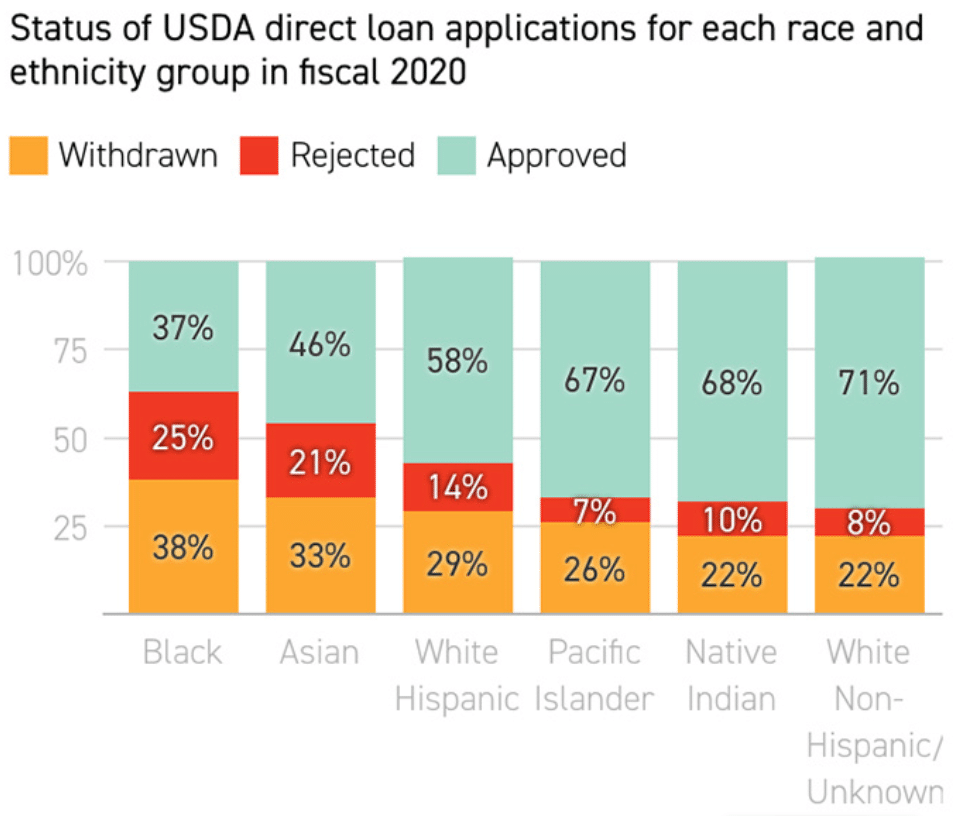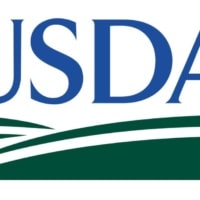“Not only have Black farmers received the least amount of direct loans of any ethnic and racial group over the past three years, but also that the number and share of direct loans hit a 10-year low last year,” Ximena Bustillo reports for Politico’s Weekly Agriculture. That matters because Agriculture Department direct loans “are supposed to be a sort of last resort for farmers who cannot get credit elsewhere. Yet, white farmers have an acceptance rate that is nearly twice as high.”

The issue goes beyond loans.
Though farmers of color represent about 5% of American farmers, they got less than 1% of Coronavirus Food Assistance Program funding, according to Agriculture Secretary Tom Vilsack, Bustillo reports.
“The department continues to fight legal battles in multiple courts to ensure that a congressionally authorized program to provide about $4 billion in debt relief to farmers of color is carried out,” Bustillo reports. “But advocates for Black farmers say USDA needs to take steps beyond debt relief to address barriers at the Farm Service Agency level including racial bias, inexperienced personnel and lack of bandwidth to help with applications. Farmers recalled FSA agents misleading them about available loan applications and being overall absent to help guide the process.”
White farmers have voiced widespread resentment of the program, who say they are also suffering during the pandemic. Under the plan, a farmer who meets the 1990 Farm Bill’s definition of “socially disadvantaged” could be paid 120% of the amount owed on a USDA loan (the extra to cover taxes on the money) without having to prove discrimination.
“USDA is conducting internal and external investigations, which are supposed to review all programs and agencies of the department to pinpoint where access may be lacking not just for Black farmers, but all producers including beginning farmers and other socially disadvantaged producers and ranchers,” Bustillo reports. “USDA has previously said it plans to start reviews with the consumer-facing branches, which includes FSA. The external review is not expected to start until the fall, but the internal one is underway and is expected to wrap up over the summer.”





